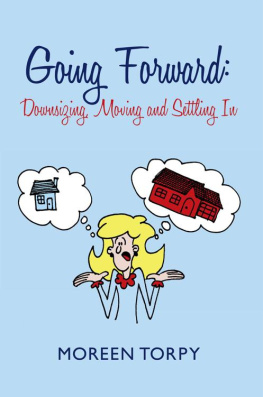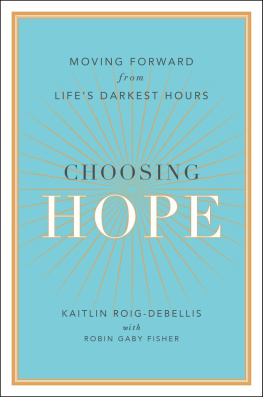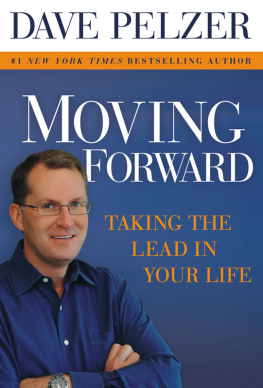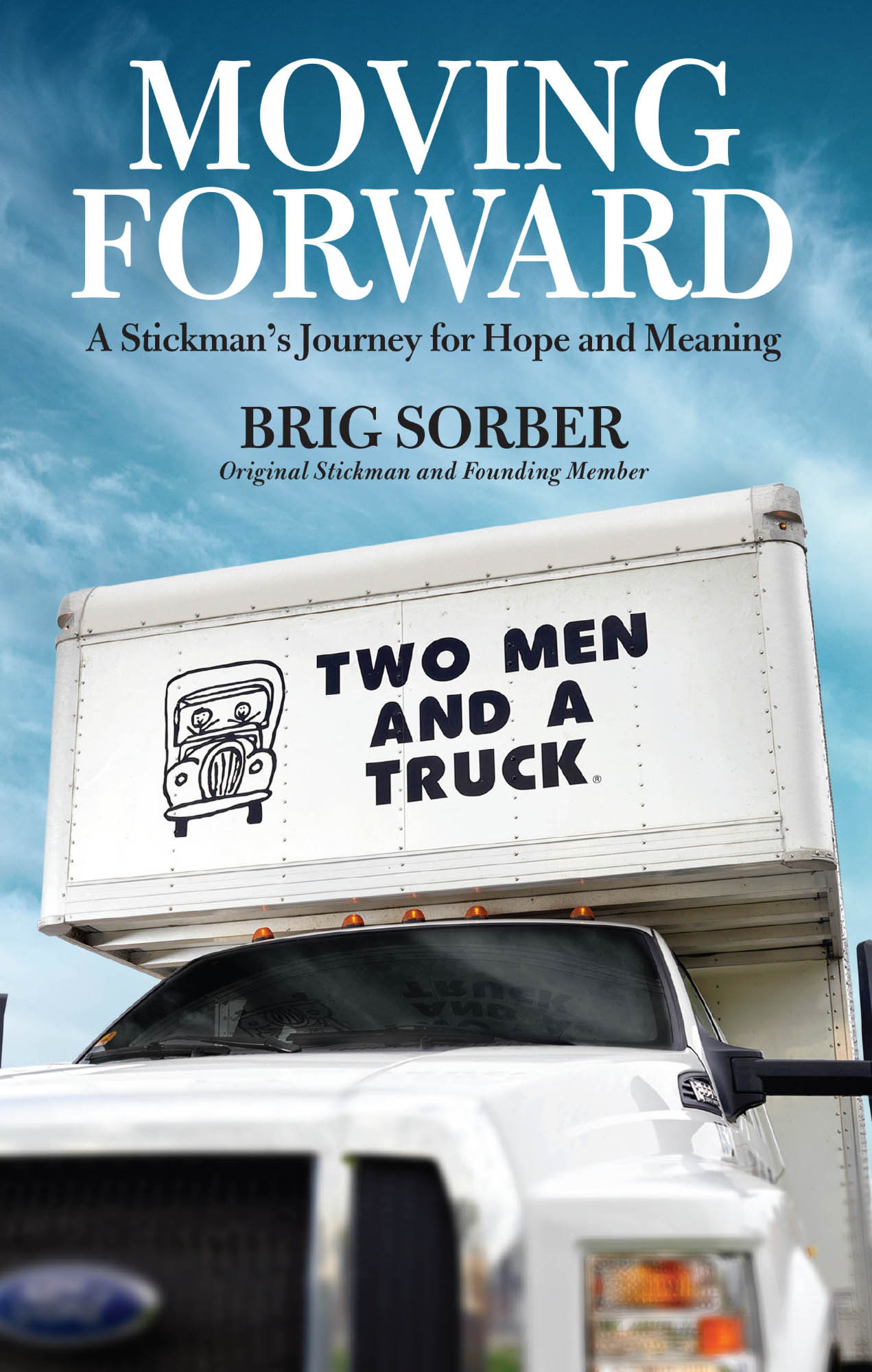Contents
Guide
Moving Forward
A Stickmans Journey for Hope and Meaning
Brig Sorber
Original Stickman and Founding Member
TO MY WIFE, FRANCINE.
Thank you for the ferocious support, the love, the wit, and the occasional kick in the ass. I would not want to be on this lifes ride with anyone else but you.
I love you.
A happy life consists not in the absence, but in the mastery of hardships.
H ELEN K ELLER
Introduction
T HE U NITED S TATES has always been a country on the move. Many of the original North American tribes were nomadic, following the herds that provided their food. In the same way, many of the early immigrants were continually advancing. Often referred to as the first settlers, they were anything but that. Not content to stay in one place, these individuals were constantly pressing forward in search of new horizons.
That restlessness and sense of adventure continues to run deep in our veins. One-tenth of the population moves to a new home every year. During their lifetime, the average American will move eleven times. Back in the day, people would take with them only what they could carry or load in a covered wagon. Not anymore.
Over the years, Americans have accumulated more possessions, and many need help to get from point A to point B. People on the move are generally at major crossroads in their life, whether thats taking ownership of a dream home or leaving a place of nightmares behind. It comes as no surprise that moving to a new home is one of the most stressful events in a persons life. Its up there with the death of a loved one, divorce, and starting a new jobeach of which could also be the reason for moving, only adding to the pressure.
Throughout the years, I have learned a few lessons about how to move things as efficiently and effectively as possible. Personally, Ive been on thousands of moves, the first of which I did with my brother, Jon, back in the 80s when we first started hauling peoples stuff, a concept my mother would later build into the Two Men and a Truck moving company. In the process of moving, I have also learned a thing or two about moving people forwardin other words, leadership.
Ive held many titles in my life. Mover, insurance salesman, warehouse manager, franchisee, franchise developer, president, CEO, husband, and dadjust to name a fewand Ive learned leadership lessons in each role.
Though many of these titles differ greatly, they actually have more in common than what we may see on the surface. Each title allows us the ability to show we care by listening, showing compassion, practicing discernment, bringing hope, and showing love.
I have also seen the darker side of leadership: anger, mistrust, intimidation, bullying, and apathy. If you have been around long enough, you have probably experienced most or all these traits. As we age and our careers move forward, many of us accumulate leadership titles. We need to be aware that they come with both a responsibility and an opportunity.
I have learned from my own mistakes over the years that if we are not careful, we will primarily make decisions to benefit ourselves. We often do this intentionally, but other times subconsciously. It happens when we lean toward what feels good or toward what our heart desires. In doing so, we are protecting what is most dear to us: our own egos.
We must find something else to base our decisions on. Something bigger than ourselves. A true north, if you will.
In geography, true north refers to the direction that points precisely toward the geographic north pole. Most people dont realize that magnetic compasses dont point precisely toward true north because magnetic north is almost always out of alignment with true geographic north. They align only every few hundred years. This is important for sailing and navigation because most charts are oriented based on true north. True north is always the same, but magnetic north changes.
If you fail to account for the variation between true north and magnetic north, you may not run into any trouble on a short trip. But on a longer trip, that small deviation can steer you way off course. You can even end up at an entirely different destination.
At a pivotal point in my life, my decisions began to follow my new true north. No more meandering around feelings and perceptions, short-term gains or losses. My growing confidence in my true north allowed more consistency during those defining moments of life, the kind where you have to make important decisions while facing uncertainty.
Having a true north helped me fight against the onslaught of short-term, Monday morning quarterbacks who arise along the way in business. More importantly, a true north direction allowed me to fly above the hurts and hunger of my own egowhich has an insatiable appetite.
A true north direction allows multitasked leaders to be more consistent in managing their titles. Managing my decision-making roles based on emotions and feelings became exhaustingif not overwhelmingto the point I felt like throwing in the towel. This newfound direction not only brought consistency in how I lead others in my different roles but also keeps me moving forward with anticipation and hope in every aspect of my life. We have all experienced traumatic times in our lives, and these painful moments can accumulate and leave us feeling inadequate, shameful, angry, and withdrawn.
Hopeless, if you will.
Even after having tremendous success and achieving all my dreams, I reached a point of hopelessness. But then I made a discovery that changed everything: what if these challenging times were seeds planted by our Creator? From seeds of trauma grow antidotes for our challenges.
In sharing my story, I offer the seeds God planted in me as well as what grew out of them. More importantly, I hope you see the seeds that lie dormant in you and what they could mean if you harvest your crop.
CHAPTER ONE Is This It?
T HE PHONE IN MY OFFICE had been ringing off the hook for the past few days, with people calling to tell me they had seen my picture on Oprah Winfreys television show.
Someone from her team had contacted us after seeing an article in The National Enquirer about our company, Two Men and a Truck. Oprah was planning to air a show on successful start-ups, and she wanted to feature my mom to tell the story of how she had developed standardized processes for the gritty little moving business my younger brother, Jon, and I had started when we were teenagers. My mom, Mary Ellen Sheets, had taken what was basically a stint of after-school odd jobs and transformed them into a legitimate nationwide business.
Unfortunately, Mom was replaced by Jeff Bezos at the last minute. At that time, Amazon was still primarily known as an internet bookseller but their stock had taken off during a surge that would later become known as the dot-com bubble. As an internet pioneer, Amazon had a compelling story.
Fortunately, our story was also compelling, and the Oprah team still wanted to highlight Moms accomplishments. They asked us to send video and photos so they could feature us on the show. I had forgotten all about it until the voice mails and emails started pouring in. Some were messages from friends who wanted to congratulate me. Others were from people I hadnt heard from since high school.
Then there were the inquiries from those wanting to know how they could become a Two Men and a Truck franchisee. They had seen a winning formula and wanted to be part of it. The national exposure was worth a fortune in advertising dollars. As the companys franchise development director responsible for signing up new franchisees, I knew this was serious pay dirt.









